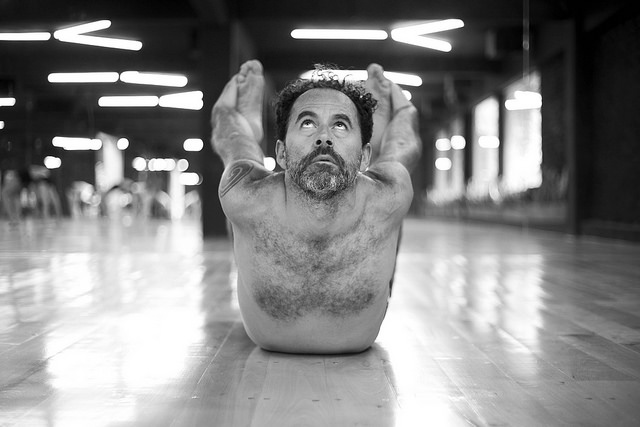
In December, my therapist suggested I try 30 days of yoga.
As someone who has struggled with weight and always used exercise as a way to control it, yoga never appealed much to me. I always engaged in the activities that would burn calories and sculpt muscles quickly and efficiently. Knowing this about me, my therapist told me one key thing to shift my perspective and make me more open to going.
“You are going for your mind not your body.”
“Okay,” I thought. “I can do that. This is like therapy every day for a month. Why not?”
I made it through the 30 days, and I continue to practice several times a week.
If you had told my skeptical self that I would learn things on the yoga mat that I would then try to incorporate in my life off the yoga mat, I would have laughed at you and thought you were ridiculous. I was just hoping to relieve some anxiety and feel a little calmer.
Here is what I learned on the yoga mat:
1. Suffering is not necessary to success.
I was a working-class kid who was taught from a young age that you had to push yourself beyond any comfortable limit in order to get ahead.
I went to law school where people prided themselves on all-nighters and studying until complete exhaustion in order to get positions at law firms with unbearable working hours. I became part of a gay culture that worships the man who pushes his body physically to attain perfection through untold hours of pain in the gym and a miserable, regimented diet. In each of these, suffering is the price you pay to succeed.
One of my favorite yoga instructors tells us things like this: “Push as long as it feels good.” “Stay relaxed.” “Do what feels right.” “Chair pose doesn’t have to be suffering.” “Nothing good comes of suffering.” And you know what? In this atmosphere, I am able to do poses, stay in poses, and go further into poses than in any other class.
On the yoga mat, success can be had by doing what feels good and right without suffering.
2. You can improve without competition and comparison.
I always believed competition and comparison were an evil necessity to measure where we are at and where we need to go. It should be motivating: feel bad and insecure about your position compared to others, and then you will want to do something about it. Setting goals to be the “best” and working toward that are the key to making you better.
My yoga studio is pretty dark, and truth be told, I probably need glasses. It is not really possible for me to see well enough to know what others are doing or how well they are doing. I don’t know if they are better. I don’t know if they are worse. I am literally precluded from comparing myself to others.
It also helps that the yoga teachers continually remind us that this is not what yoga is about. It’s just you making noticeable improvements if and when your body is ready as time goes on. I can now touch my toes. I am improving my balance. But I don’t know how that compares to others and I don’t care. I can see improvement without that comparison, and it is enough.
On the yoga mat, it is just you taking care of you. What anyone else is doing is their concern, not yours.
3. You can choose to accept where you are today and find contentment, or not accept where you are today and generate anxiety now and in the future.
Non-acceptance with where you are today is an effective and healthy motivator for change, right?
When I was overweight, I did not accept my body. And I was not going to accept where I was on any given day until I reached an “ideal” weight. But, by never learning to accept where I was at any given moment, I had no practice at all in acceptance—once I got where I wanted to go. I didn’t know how to do it. Rather than accepting my body when I did get there, I just generated anxiety about losing my new body to weight gain.
On the yoga mat, we learn to accept what our body can do on that day for that day. It is what it is. Dissatisfaction or judgment of what is happening today doesn’t assure improvement tomorrow. It has nothing to do with furthering your practice at all. It simply makes you miserable today and sets you up to never find acceptance in the future.
4. It’s okay to not be good at something and still do it.
I suppose nobody likes to do things that they can’t do well, but I really hate it. At the first sign of failure, I am apt to quit while I am ahead. I must confess, I am kinda horrible at yoga. I know—there is no such thing, and that contradicts some of the points above. But really, I do struggle. My tree pose is low, I stumble around a lot when balancing with one leg off the ground, and often times, my high lunge is shaky. But both yoga and my teachers constantly remind me that it is okay. Don’t take it so seriously.
On the yoga mat, the tagline is: “Try it. It is totally great if you suck at it.”
Yoga is a practice on and off the mat. Old habits die hard. And some of these concepts are radical departures from how I and many of us have lived our lives. But if we can make what is true on the yoga mat work off the yoga mat, what a better life it will be.
~
Author: John Coburn
Image: Rodrigo Díaz/Flickr
Editor: Catherine Monkman








Read 0 comments and reply